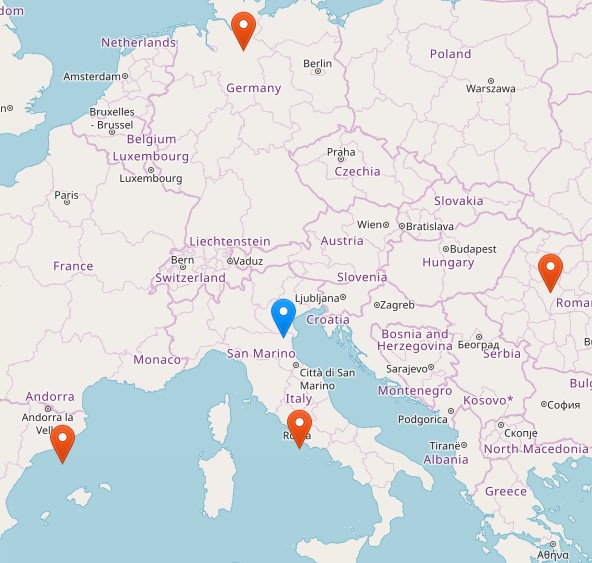On July 2024, we learnt that our “crazy idea” had been considered as feasible by the Italian National Agency. Therefore…
we’re ready to hit the ground running!
ETH-TECH isn’t just another academic project; it’s a call to action. We’re on a mission to revolutionize how educators think about Artificial Intelligence (AI), data usage, and digital practices—not as passive tools, but as powerful forces that need to be navigated ethically. Because let’s face it: the digital world isn’t just about innovation; it’s about power, too.
Why ETH-TECH Is Urgent
We live in a world where Big Tech giants wield immense influence over how we communicate, learn, and think. These corporations have normalized the use of personal data as a commodity, and their platforms often prioritize profits over the public good.
Educators are often left to play catch-up, trying to make sense of algorithms, AI, and disinformation campaigns that Big Tech platforms fuel—knowingly or not. ETH-TECH is here to flip the script. We believe the classroom can be a space where future educators learn to question, challenge, and reshape the narrative of technology in education.
Our mission is to make sure tomorrow’s teachers aren’t just users of digital tools—they’re critical thinkers who understand the ethical implications of these tools.
What We’re Doing
With ETH-TECH, we’re tackling these challenges head-on through:
- Awareness Raising Sessions (ARS): Getting academics and students to take a hard look at the ethics of AI and data usage in education. These conversations don’t shy away from asking tough questions, like:
- Are Big Tech platforms shaping our curriculum without us even realizing it?
- How can we resist the pressure to adopt tools that prioritize surveillance over learning?
- Building Practical Tools: We’re developing frameworks and checklists that help institutions and faculty identify where their practices fall short—and where Big Tech’s influence might be creeping in.
- Creating Open Educational Resources (OERs): To institutionalize ETH-TECH quickly and effectively, we’re crafting 25 hours of training material (equivalent to 1 ECTS) that’s accessible, actionable, and unapologetically critical.
- Educathons: Think hackathons, but with a purpose: validating our resources while collaborating with NGOs, students, academics, and even (a few) tech industry stakeholders willing to engage ethically.
A Movement for Change
ETH-TECH isn’t just a project; it’s a rallying cry. We’re calling on educators to stop being passive consumers of digital tools designed by corporate interests and to start questioning:
- Who controls the algorithms shaping how we teach?
- What biases are baked into the AI tools we use in our classrooms?
- How can we fight back against disinformation and data commodification?
Why This Matters
Big Tech has long sold us the dream of frictionless, efficient education, but at what cost? The centralization of power in a handful of corporations has turned classrooms into testing grounds for surveillance capitalism.
It’s time to take back control. Through ETH-TECH, we’re creating a roadmap for ethical, responsible integration of technology in education—one that puts students, educators, and communities at the center, not Big Tech shareholders.
Reflect, resist, react…
We’re not here to tinker around the edges—we’re here to put ideas into action. With partners like Helmut Schmidt Universität in Germany, Universitat de Barcelona in Spain, and Universitatea Babeș-Bolyai in Rumania, and the Università di Padova and the Media Education Association, from Italy we want to support collective awareness that challenges naive techno-enthusiasm.
So, follow our journey at eth-tech.eu. Together, we can imagine—and build—a future where education embraces technology without losing sight of what matters most: ethics, equity, and human connection.
Let’s remind that education is about empowering people with (not for) technological developments.

Leave a Reply